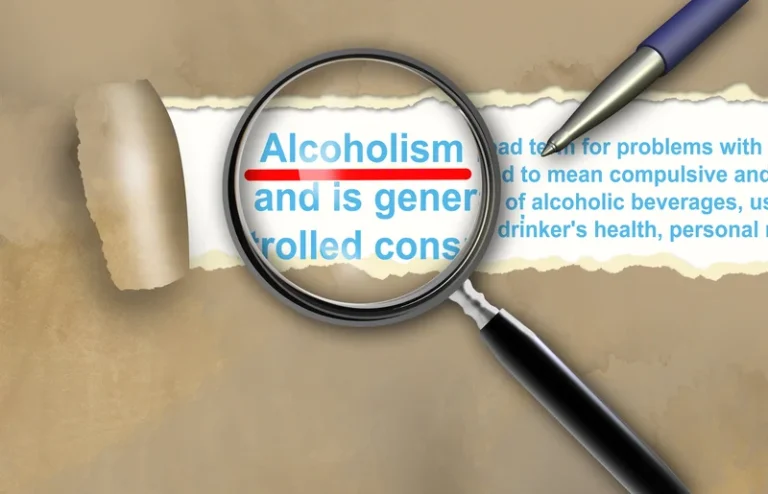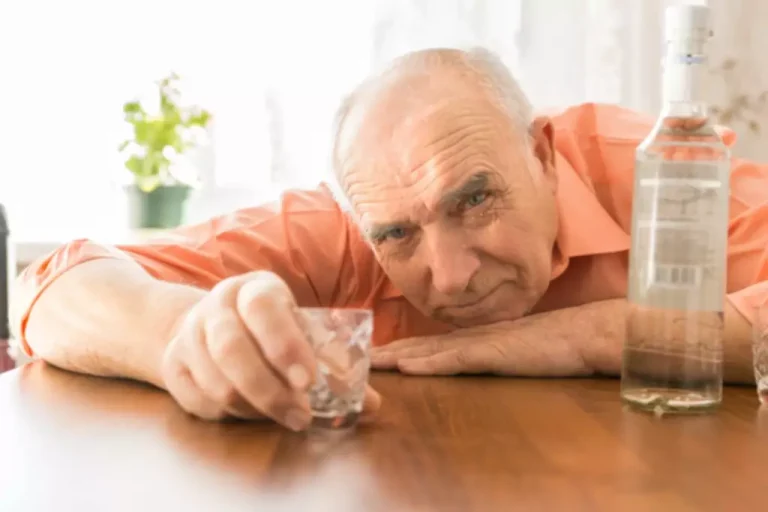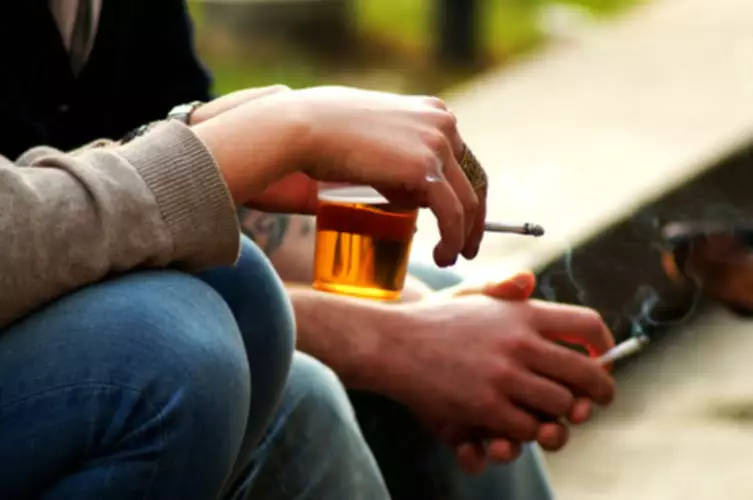Antidepressants and alcohol: What’s the concern?

When psychosis is suspected, a general physical and neurological exam should be performed to exclude medical causes such as subdural hematoma, seizures, or hepatic encephalopathy—any of which may be a consequence of AUD. Again, it’s important to create a timeline of mental health symptoms and alcohol use and to collaborate as needed with mental health specialists for selection of pharmacotherapies and psychosocial interventions. These changes may include an overall personality, depression, declining grades, loss of interest in family and friends, over-sensitivity, moodiness, nervousness, paranoia, secretive or suspicious behaviors, and excessive talkativeness. Often people also experience difficulty in paying attention, and a general lack of motivation and energy, sometimes characterized by a “who cares” attitude. The need for screening for depression in alcohol-dependent persons and continuous monitoring for it during treatment of alcohol dependence cannot be overemphasized.
Related Articles

Only one notable study of COA’s has demonstrated a higher-than-expected risk for these major psychiatric disorders. However, as pointed out by Kushner (1996), larger studies of COA’s who have passed the age of risk for most disorders will need to be conducted before final conclusions can be drawn. It is, therefore, not surprising that more than one out of every three alcoholics has experienced episodes of intense depression and/or severe anxiety (Cox et al. 1990; Wilson 1988).
Drugs & Supplements

Despite the availability of information on the correlation between depression and SUD and/or alcohol dependence, their causality is still controversial [5]. The association between substance use and depression has been specified more significantly for some substances, including alcohol, cannabis, and opioids. Some data are also available on stimulant agents and benzodiazepines [6]. This article briefly reviews some alcohol and depression of the recent literature on the complex interaction between alcohol dependence and the longer lasting anxiety or depressive disorders. The interactions between alcoholism and these disorders are evaluated by posing a series of questions, and the reader is encouraged to review the articles cited in the reference list. In keeping with the guidelines of Alcohol Health & Research World, review articles are emphasized.
Why You Feel Depressed After Drinking and How to Handle It
In this article, learn more about the links between alcohol and depression, as well as when to see a doctor. Crystal Raypole has previously worked as a writer and editor for GoodTherapy. Her fields of interest include Asian languages and literature, Japanese translation, cooking, natural sciences, sex positivity, and mental health. In particular, she’s committed to helping decrease stigma around mental health issues. These blues usually don’t linger, though, so you’ll probably feel better in a day or so.

It probably won’t hurt to have a glass of wine or beer once in a while for social reasons unless you have a health condition that prevents you from drinking. But if you turn to alcohol to get you through the day, or if it causes trouble in your relationships, at work, in your social life, or with how you think and feel, you may have a more https://ecosoberhouse.com/ serious problem. Variations in this gene might put people at risk of both alcohol misuse and depression. Regular drinking can lead to depression, and depressed people are also more likely to drink too much. For example, having a family member with an alcohol use disorder is a risk factor for both depression and alcohol use disorder.


This phenomenon can be particularly problematic if a patient’s treatment plan requires clear boundaries and firm, clear, communication of the terms of treatment. The integrated model aims to eliminate this potential for conflicting messages by consolidating treatment. Having one clinician or treatment team under one roof work with a patient simultaneously on the depressive disorder and AUD can improve communication with more consistent articulation of diagnostic impressions and treatment recommendations. Moreover, this approach could provide greater convenience for the patient (thereby improving the chances of retention in treatment), and more treatment flexibility in the face of evolving clinical impressions and management recommendations. One challenge to this model is having the resources to provide expert simultaneous AUD and depressive disorder evaluation and treatment in the form of a single clinician or treatment team. Moreover, the increased management demand placed on a single team or clinician could potentially decrease the total number of patients that that clinician or team could manage at any one time.
Are You Abusing Alcohol and/or Drugs?
- Once a person becomes deeply depressed, regardless of the cause, he or she may need to be hospitalized and provided with the appropriate precautions against suicide.
- Fortunately, several important ongoing studies will help answer some remaining questions regarding the treatment of coexisting depressive or anxiety disorders in the context of alcoholism.
- Here, we briefly describe the causes and effects of co-occurrence, the mental health disorders that commonly co-occur with AUD, and the treatment implications for primary care and other healthcare professionals.
- As previously mentioned, it is possible that many depressed or anxious alcoholics demonstrate mood or nervousness conditions caused by intoxication or withdrawal from alcohol; these psychiatric states are likely to improve markedly during the first several weeks to 1 month of abstinence.
- It often feels very tempting (and easy) to keep drinking until you feel better, especially when you have less access than usual to more helpful coping methods.
- Experiencing both depression and AUD can be a difficult road, but recovery is possible.
The substantial variability in the course of co-occurring AUD and depressive disorders may reflect discrete underlying mechanisms, requiring distinct treatment approaches. For example, AUD that develops after the onset of a depressive disorder and is characterized by coping motives for alcohol use may differ critically from a depressive disorder that develops following chronic alcohol administration. Data from studies of depression indicate that the substantial variability in the symptoms presented reflects a heterogeneous pathophysiology,32 yet research on heterogeneity in co-occurring AUD and depressive disorders remains limited. Nearly one-third of people with major depression (or major depressive disorder) also have alcohol use disorder. Research shows that depressed children are more likely to have problems with alcohol a few years down the road. Also, teens who’ve had a bout of major depression are twice as likely to start drinking as those who haven’t.
- Accordingly, this usually requires a combination therapy and most properly combining pharmacological therapy with psychotherapy.
- Several separate lines of evidence cast doubt on the possibility that high proportions of alcoholics have severe, long-term depressive or anxiety disorders.
- Despite the availability of several evidence-based medications and behavioral therapy approaches for treating co-occurring AUD and depressive disorders, improvements in treatment for this population are clearly needed.
- In one 2018 study, 60 people who recently detoxed from alcohol experienced fewer depressive symptoms after participating in Sudarshan Kriya Yoga for just 2 weeks.
Symptoms of alcohol use disorder
- The relationship between alcohol-use disorders and psychiatric symptoms is both clinically important and very complex (Brady and Lydiard 1993).
- Call 999, contact your local mental health crisis team or go straight to A&E if you’re able to safely.
- For example, clinicians often wonder whether a patient’s depressive symptoms are occurring as a result of a primary depressive disorder or are due to the effects of chronic alcohol use.
- Substance use disorder (SUD) is a condition that is prevalent in all age groups at all socio-economic levels [1].
- Women with depression are also more likely to engage in binge drinking.
Persistent depressive disorder (PDD) has milder symptoms than MDD but lasts longer. It’s often called high-functioning depression and involves having a low mood for at least 2 years. Treatment often includes an integrated approach to simultaneously address both alcohol use disorder and depression. Everyone feels blue or down from time to time, and people often say that they feel “depressed” during these temporary bouts of sadness. But clinical depression isn’t just a matter of feeling the occasional ups and downs or periodic sadness caused by issues of daily life.
- Alcohol dependence has been shown to be genetically influenced and to run in families (Schuckit and Smith 1996).
- Depression is different to anxiety (a feeling of worry or fear about what might happen, inability to concentrate and – for some people – panic attacks).
- As for depression co-existing with alcohol dependence, Jordans et al. [17] evaluated the use of psychotherapy combined with anti-depressants for patients with depression and alcohol dependence.
- “Depression and alcohol misuse are often tied because we take a depressant to counter a chemical depression which only makes it worse.”
Effects of Alcohol Use
Most antidepressants require taking a consistent, daily dose to maintain a constant level in your system and work as intended. A total of 188 participants underwent community-based detoxification but only 156 were followed up for the six months. Majority (60.5%) of the participants had begun drinking alcohol before the age of 18years, with the mean AUDIT score being 28.6 for male and 26.6 for females. The mean age of the group was 31.9 years, with majority (84%) of the participants aged below 40 years.
